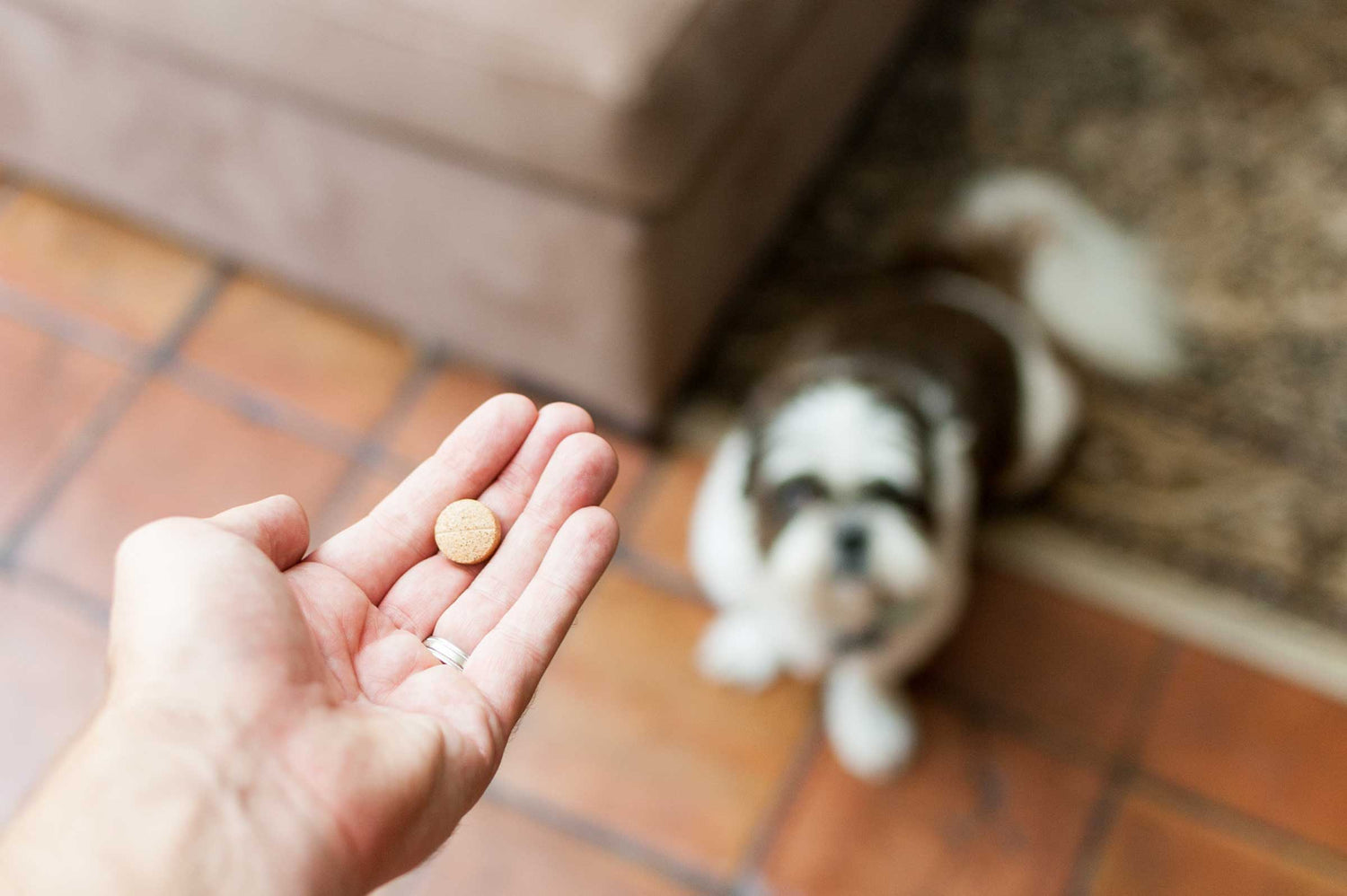When your dog is feeling under the weather, it's natural to want to help them feel better as quickly as possible. Benadryl, a common over-the-counter medication for humans, is often considered by pet owners to relieve their dog's allergy symptoms or anxiety. But before you reach for that familiar pink tablet, it's important to understand how Benadryl works for dogs and how to use it safely.
What Is Benadryl and How Does It Work?
Benadryl is the brand name for diphenhydramine, an antihistamine used to treat allergies, hay fever, and cold symptoms in humans. For dogs, Benadryl can be used to treat allergic reactions, motion sickness, and anxiety, among other issues. The active ingredient, diphenhydramine, works by blocking histamines, the chemicals in the body that cause allergy symptoms.
In addition to its antihistamine properties, Benadryl has a sedative effect, which can help calm an anxious dog or manage motion sickness during travel. However, the sedative effect may vary from dog to dog, with some experiencing mild drowsiness while others might become hyperactive.
Is Benadryl Safe for Dogs?
Yes, Benadryl is generally safe for dogs when used appropriately. However, it’s crucial to consult with your veterinarian before administering any medication to your dog. Some dogs may have pre-existing conditions, such as heart disease or glaucoma, that could be aggravated by Benadryl. Additionally, certain breeds, such as those with short snouts like Bulldogs and Pugs, might be more susceptible to respiratory side effects.
The right dosage is also key to ensuring your dog’s safety. While Benadryl is safe for most dogs, an incorrect dose could lead to unwanted side effects such as dry mouth, difficulty urinating, or even an overdose, which could be life-threatening.
How Much Benadryl Is Safe for Dogs?
The dosage of Benadryl typically depends on your dog’s weight. The general guideline is 1 mg of Benadryl per pound of body weight, given 2-3 times a day. For example, a 25-pound dog could safely take 25 mg of Benadryl. However, always confirm the dosage with your veterinarian, as they can consider your dog’s overall health, age, and other medications that may interact with Benadryl.
It’s important to use plain Benadryl tablets or liquid, as some formulations contain other ingredients like alcohol or decongestants, which can be harmful to dogs. If using liquid Benadryl, make sure it doesn’t contain alcohol, and measure it carefully to avoid giving too much.
When Should You Avoid Giving Benadryl to Your Dog?
While Benadryl can be a helpful remedy for many dogs, it’s not suitable for every situation. Avoid giving Benadryl to your dog if they are pregnant, nursing, or have certain medical conditions like high blood pressure or cardiovascular disease. Additionally, if your dog is taking other medications, there could be potential drug interactions, so always consult with your vet first.
If your dog has a severe allergic reaction, such as difficulty breathing, swelling of the face or throat, or sudden onset of hives, it’s important to seek emergency veterinary care immediately rather than relying on Benadryl alone.
Monitoring Your Dog After Administering Benadryl
After giving your dog Benadryl, monitor them closely for any side effects or changes in behavior. Common side effects include drowsiness, dry mouth, and urinary retention. If you notice any severe reactions, such as vomiting, diarrhea, or extreme lethargy, contact your veterinarian right away.











